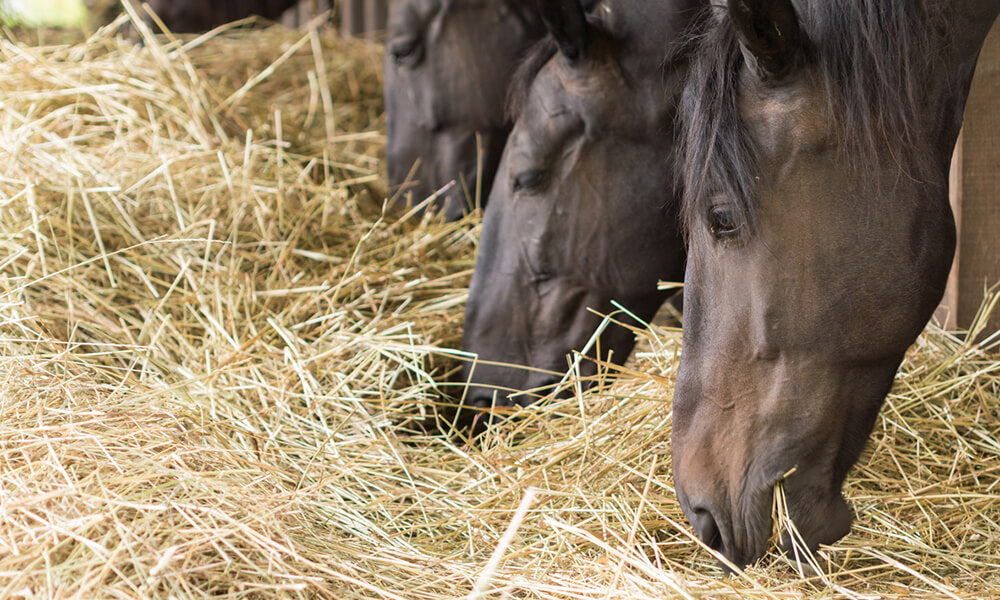When it comes to feeding horses, many owners and caretakers are curious about the benefits and drawbacks of various feeds. One feed that often comes into question is alfalfa. So, is alfalfa good for horses? Understanding the nutritional value and potential impacts of alfalfa on horses is essential for making informed feeding decisions.

Understanding Alfalfa in Horse Diets
Alfalfa is a legume hay that is rich in nutrients and often included in equine diets. It is known for its high protein content and essential vitamins and minerals.
Nutritional Composition of Alfalfa
Alfalfa is celebrated for its high levels of protein and calcium, which are crucial for the growth and maintenance of horses. It also provides a good amount of energy due to its digestible fiber content.
Protein Content
One of the standout features of alfalfa is its protein content. This is particularly beneficial for young, growing horses or lactating mares, which require higher protein levels.
Calcium and Other Minerals
The calcium found in alfalfa is vital for bone health. However, the high calcium content requires careful balance with phosphorus to avoid potential health issues.
Benefits of Alfalfa for Horses
Feeding alfalfa to horses can offer several benefits, especially when included as part of a balanced diet.
Supports Growth and Development
Because of its high protein and nutrient-rich profile, alfalfa supports the growth and development of young horses and helps maintain the condition of working and performance horses.
Excellent Energy Source
Alfalfa provides a good source of energy for horses, which is particularly beneficial for those involved in heavy work or performance activities.
Considerations and Potential Drawbacks
While alfalfa is highly beneficial for many horses, it’s important to consider certain factors to ensure it is the right choice for your horse.
Balancing Calcium and Phosphorus
The high calcium content in alfalfa must be balanced with adequate phosphorus to prevent imbalances that can lead to health issues. This balance is crucial, especially for young horses.
Weight Management
Due to its high energy and protein levels, alfalfa can contribute to weight gain if not fed in moderation. This may not be suitable for horses prone to obesity or those with metabolic issues.
How to Incorporate Alfalfa into a Horse’s Diet
Introducing alfalfa to your horse’s diet should be done gradually and with consideration of their overall nutritional needs.
Gradual Introduction
Start by introducing small amounts of alfalfa and gradually increase the quantity while monitoring your horse’s condition and weight.
Balanced Diet
Ensure that your horse’s diet remains balanced by incorporating other feeds and supplements as needed. Consider consulting an equine nutritionist for personalized advice.
Conclusion: Is Alfalfa Good for Horses?
In conclusion, alfalfa can be a valuable component of a horse’s diet when used appropriately. Its high nutrient content supports growth, development, and energy needs. However, careful management is necessary to avoid potential imbalances and weight issues.

FAQs
Can all horses eat alfalfa?
While many horses can benefit from alfalfa, it may not be suitable for those prone to obesity or certain metabolic conditions.
How much alfalfa should I feed my horse?
The amount of alfalfa should be tailored to the individual needs of your horse. Consult an equine nutritionist for personalized advice.
Is there a risk of calcium imbalance with alfalfa?
Yes, due to its high calcium content, it is important to balance alfalfa with adequate phosphorus to prevent imbalances.
Resources for Further Reading
For more information on equine nutrition, visit this external resource and explore body condition scoring at ProHorseWorld.
This article contains affiliate links. We may earn a commission at no extra cost to you.
